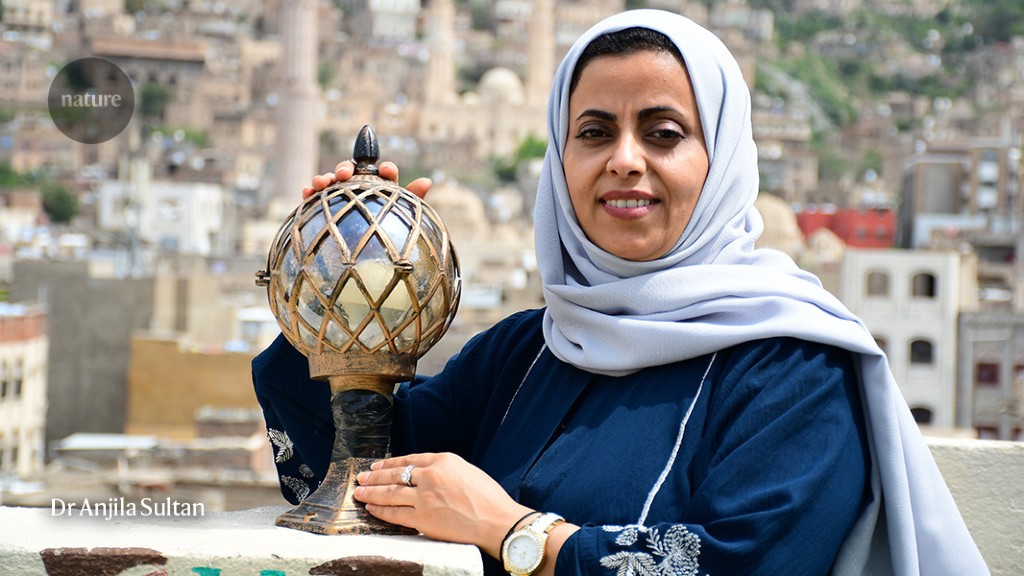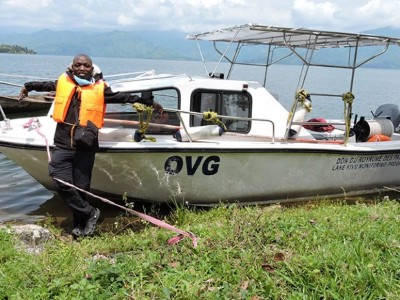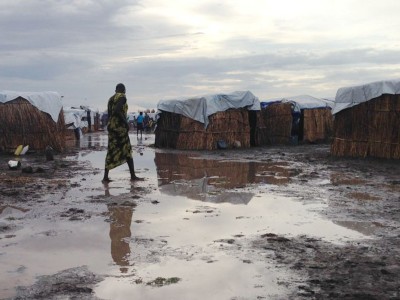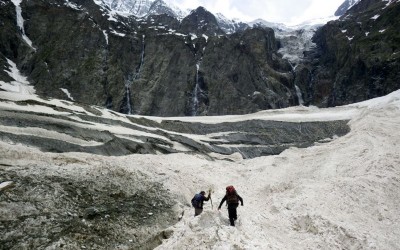[ad_1]
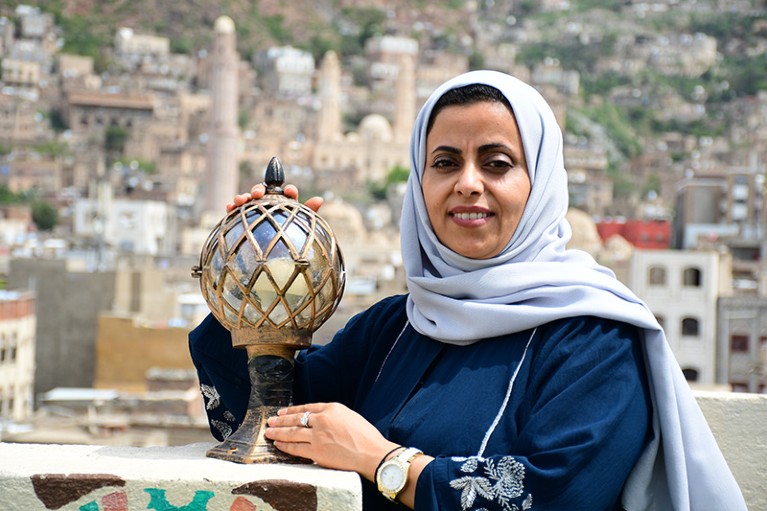
Anjila Sultan, pictured in entrance of the Outdated Metropolis of Taiz, is a mental-health researcher in Yemen.Credit score: Dr Anjila Sultan
I spent my adolescence in Taiz, Yemen’s third-largest metropolis, the place lengthy publicity to a sequence of conflicts has led to more and more critical violations in opposition to susceptible teams. I used to be affected emotionally by the violence in the direction of girls and kids there. I might see torture marks throughout women’ our bodies, together with bruises, wounds and burns — ensuing from bodily assault by relations, underneath the pretext of correcting the ladies’ behaviour and morality. They wanted psychological help for this trauma, but it surely wasn’t out there, which motivated me to check psychology at Taiz College. As part of my research, I visited correctional amenities and offered psychological help for feminine inmates affected by home and gender-based violence.
Analysis on the intersection of ‘human rage and nature’s fury’
In 2009, after acquiring a grasp’s diploma in psychological well being on the College of Aden in Yemen, I labored as a instructing assistant at Taiz College. In 2011, I moved to Egypt to check for a PhD in psychological well being at Assiut College. My dad and mom then adopted me, as a result of an rebellion broke out throughout Yemen as quickly as I left, and there was an outbreak of avenue warfare in Taiz between forces loyal to Ali Abdullah Saleh, who was president on the time, and armed opposition forces. When the Yemeni civil warfare began in 2014, I noticed how susceptible teams weren’t in a position to meet their primary mental-health and social wants amid this insufferable and limitless sequence of bloody conflicts.
Statistics counsel that these conflicts have additional broken girls’s psychological well being, and I see this as associated to additional social and cultural pressures which have positioned new restrictions on girls. I’ve present in my work that widespread unemployment amongst males results in a rise in home violence, and poverty has led to an increase in youngster marriage charges amongst folks displaced by the warfare. I might have been a type of youngster brides, had it not been for a little bit luck.
Solidarity and help
Pushed by a deep bond of solidarity, I travelled again to Yemen in 2018, one 12 months after acquiring my PhD. I returned to a instructing submit at Taiz College and co-founded the Middle for Strategic Research to Assist Ladies and Youngsters, the place my colleagues and I conduct research and supply free psychological help. We gather mental-health knowledge for girls and kids dwelling within the wider Taiz area. These folks, a few of whom stay in refugee camps, are affected by the burdens of battle, in addition to by social and cultural pressures. We study their psychological state to know how displacement and trauma exacerbate mental-health problems.
Classes learnt from doing analysis amid a humanitarian disaster
These days, though some calm has prevailed in Taiz itself, the encircling countryside continues to be turbulent. Typically, armed clashes get away unexpectedly, making me uncertain when making an attempt to give you security plans. I lead a workforce of 5 feminine psychologists. Lack of safety nonetheless limits our commutes at evening, so I guarantee that my workforce and I are dwelling earlier than then. For security’s sake, we normally cut up into two groups of two or three when overlaying research areas. We make certain everyone knows the closest place the place communication networks can be found, and we talk with native officers to coordinate our actions. This requires us to be versatile and affected person when discussing the place to go, and for what function.
Since round 2016 or 2017, the persevering with violence has given house to numerous extremist teams throughout the nation to power residents to observe sure traditions that primarily goal girls and prohibit their motion. Unaccompanied girls aren’t allowed to journey between cities now. Feminine fieldworkers, who shuttle between cities and villages with out a male family member, have been accused of ‘ethical distortion’. This makes attending to the research areas a problem. I’m typically bullied, harassed and insulted, and I put up my automotive window in order to not hear the abuse. As soon as, once I was away in Egypt, my workforce was denied entry to our research space. I referred to as an area official, who helped me by ordering folks locally to not hinder our work.
Security precautions
An enormous concern is when native leaders forbid us to have contact with girls and kids, after we’ve made nice efforts to achieve the world. However my largest worry is that preventing will get away unexpectedly whereas we’re within the countryside, placing our lives in actual hazard. We take precautions for our private security. We don’t take cameras with us, as a result of strolling round with a digital camera can arouse suspicion. As a substitute, we use our telephones to document interviews.
Assortment: Fieldwork
You will need to pay attention to cultural issues: to know what behaviours are unacceptable and what subjects of dialog could be off-limits. Throughout one in all our fieldwork periods, a fierce combat broke out between refugees and the host-village neighborhood. We determined to drive to a safer place and look forward to few hours in our vehicles till the stress subsided. Working in such situations requires neutrality throughout quarrels between totally different elements of the inhabitants, and the flexibility to deal quietly with questions from individuals who could be suspicious of our motives. For instance, I spend a variety of time telling those who we don’t belong to any political occasion or faction.
It’s thought that there’s just one psychiatrist for each half one million folks in Yemen1. It’s my obligation to not go away behind those that are struggling on account of painful experiences and extreme psychological crises. From our years working within the area, I do know that our psychological help periods have helped many ladies to regain their confidence and psychological well-being. These outcomes make me really feel that we are able to make a distinction, which motivates me to maintain working regardless of the dangers.
This interview has been edited for size and readability.
[ad_2]


